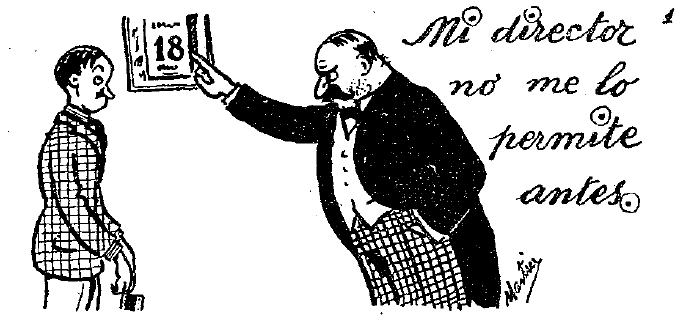
| Языки :: Испанский |
| Аудио |

 |
|
 |
| 6 | Español |
Spanish |
| Lectura Primera (1ͣ) | First reading [reading first]. | |
| Alberto va a París | Albert goes to Paris. | |
|
The Spanish a is midway between a in cat and a in father, even before l or r. |
||
| 1 | Alberto! ¡Tú! ¿'Es posible? | Albert! You! is (it) possible? |
| 2 | ¿Cómo va, Carlos? ¿y tu familia? | How goes (it), Charles? And your family? |
|
(One syllable for lia). |
||
| 3 | Todos perfectamente ¡que sorpresa! ¡yo te creía en Paris! |
All perfectly, what (a) surprise? |
| In creía, stress the í. | ||
| 4 | Me marcharé la semana que viene. Mi director no me lo permite antes. |
I shall start (march me) the week that
comes. My director does not permit me before. |
|
Note, in marcharé, that ch is pronounced
tch in Spanish as
in English. In viene, vie in one syllable, as in de-via-tion. The v articulated lazily, tends towards b. In antes, an is sounded as in "animal", |
||
| 5 | ¿Vas por mucho tiempo? | (Do you) go for a long [much] time? |
|
The accent
on moô indicates that the sound moo
must be
strongly stressed. V is soft, nearly b. |
||
|
(We put between parentheses the words which are necessary for
the English meaning, but useless in Spanish; between brackets, the literal translation.) |
||
| 6 | No lo sé; probablemente por tres semanas, y, si es posible, por un mes. |
(I do) not know it; probably for three
weeks, and, if (it) is possible, for one month. |
|
English : |
